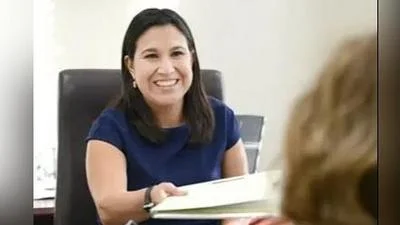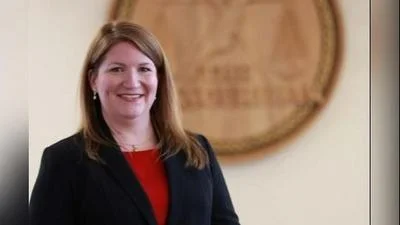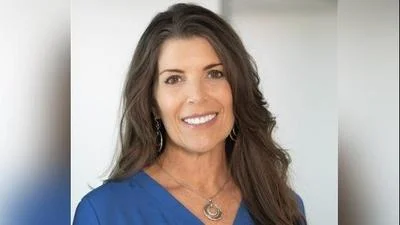The publication is reproduced in full below:
{time} 1330
ELIMINATING BARRIERS TO RURAL INTERNET DEVELOPMENT GRANT ELIGIBILITY
ACT
Mr. PAPPAS. Madam Speaker, I move to suspend the rules and pass the bill (H.R. 3193) to amend the Public Works and Economic Development Act of 1965 to provide for a high-speed broadband deployment initiative, as amended.
The Clerk read the title of the bill.
The text of the bill is as follows:
H.R. 3193
Be it enacted by the Senate and House of Representatives of the United States of America in Congress assembled,
SECTION 1. SHORT TITLE.
This Act may be cited as the ``Eliminating Barriers to Rural Internet Development Grant Eligibility Act'' or the
``E-BRIDGE Act''.
SEC. 2. HIGH-SPEED BROADBAND DEPLOYMENT INITIATIVE.
(a) In General.--Title II of the Public Works and Economic Development Act of 1965 (42 U.S.C. 3141 et seq.) is amended by adding at the end the following:
``SEC. 219. HIGH-SPEED BROADBAND DEPLOYMENT INITIATIVE.
``(a) Definitions.--In this section:
``(1) Broadband project.--The term `broadband project' means, for the purpose of providing, extending, expanding, or improving high-speed broadband service to further the goals of this Act--
``(A) planning, technical assistance, or training;
``(B) the acquisition or development of land; or
``(C) the acquisition, design and engineering, construction, rehabilitation, alteration, expansion, or improvement of facilities, including related machinery, equipment, contractual rights, and intangible property.
``(2) Eligible recipient.--
``(A) In general.--The term `eligible recipient' means an eligible recipient.
``(B) Inclusions.--The term `eligible recipient' includes--
``(i) a public-private partnership; and
``(ii) a consortium formed for the purpose of providing, extending, expanding, or improving high-speed broadband service between 1 or more eligible recipients and 1 or more for-profit organizations.
``(3) High-speed broadband.--The term `high-speed broadband' means the provision of 2-way data transmission with sufficient downstream and upstream speeds to end users to permit effective participation in the economy and to support economic growth, as determined by the Secretary.
``(b) Broadband Projects.--
``(1) In general.--On the application of an eligible recipient, the Secretary may make grants under this title for broadband projects, which shall be subject to the provisions of this section.
``(2) Considerations.--In reviewing applications submitted under paragraph (1), the Secretary shall take into consideration geographic diversity of grants allocated, including consideration of underserved markets, in addition to data requested in paragraph (3).
``(3) Data requested.--In reviewing an application submitted under paragraph (1), the Secretary shall request from the Federal Communications Commission, the Administrator of the National Telecommunications and Information Administration, the Secretary of Agriculture, and the Appalachian Regional Commission data on--
``(A) the level and extent of broadband service that exists in the area proposed to be served; and
``(B) the level and extent of broadband service that will be deployed in the area proposed to be served pursuant to another Federal program.
``(4) Interest in real or personal property.--For any broadband project carried out by an eligible recipient that is a public-private partnership or consortium, the Secretary shall require that title to any real or personal property acquired or improved with grant funds, or if the recipient will not acquire title, another possessory interest acceptable to the Secretary, be vested in a public partner or eligible nonprofit organization or association for the useful life of the project, after which title may be transferred to any member of the public-private partnership or consortium in accordance with regulations promulgated by the Secretary.
``(5) Procurement.--Notwithstanding any other provision of law, no person or entity shall be disqualified from competing to provide goods or services related to a broadband project on the basis that the person or entity participated in the development of the broadband project or in the drafting of specifications, requirements, statements of work, or similar documents related to the goods or services to be provided.
``(6) Broadband project property.--
``(A) In general.--The Secretary may permit a recipient of a grant for a broadband project to grant an option to acquire real or personal property (including contractual rights and intangible property) related to that project to a third party on such terms as the Secretary determines to be appropriate, subject to the condition that the option may only be exercised after the Secretary releases the Federal interest in the property.
``(B) Treatment.--The grant or exercise of an option described in subparagraph (A) shall not constitute a redistribution of grant funds under section 217.
``(c) Non-Federal Share.--In determining the amount of the non-Federal share of the cost of a broadband project, the Secretary may provide credit toward the non-Federal share for the present value of allowable contributions over the useful life of the broadband project, subject to the condition that the Secretary may require such assurances of the value of the rights and of the commitment of the rights as the Secretary determines to be appropriate.''.
(b) Clerical Amendment.--The table of contents in section 1(b) of the Public Works and Economic Development Act of 1965
(42 U.S.C. 3121 note; Public Law 89-136) is amended by inserting after the item relating to section 218 the following:
``Sec. 219. High-speed broadband deployment initiative.''.
SEC. 3. DETERMINATION OF BUDGETARY EFFECTS.
The budgetary effects of this Act, for the purpose of complying with the Statutory Pay-As-You-Go Act of 2010, shall be determined by reference to the latest statement titled
``Budgetary Effects of PAYGO Legislation'' for this Act, submitted for printing in the Congressional Record by the Chairman of the House Budget Committee, provided that such statement has been submitted prior to the vote on passage.
The SPEAKER pro tempore. Pursuant to the rule, the gentleman from New Hampshire (Mr. Pappas) and the gentleman from Missouri (Mr. Graves) each will control 20 minutes.
The Chair recognizes the gentleman from New Hampshire.
General Leave
Mr. PAPPAS. Madam Speaker, I ask unanimous consent that all Members may have 5 legislative days in which to revise and extend their remarks and include extraneous material on H.R. 3193, as amended.
The SPEAKER pro tempore. Is there objection to the request of the gentleman from New Hampshire?
There was no objection.
Mr. PAPPAS. Madam Speaker, I yield myself such time as I may consume.
Madam Speaker, I rise today in support of H.R. 3193, the Eliminating Barriers to Rural Internet Development Grant Eligibility, or E-BRIDGE, Act.
Introduced by Ranking Member Graves and Representative Guest, the bill would create a high-speed broadband initiative at the Economic Development Administration and clarify that public-private partnerships and consortiums are eligible for broadband project grant awards.
Access to reliable high-speed internet is vital for participation in today's workforce and economy. Whether it is working or learning from home, communicating virtually with friends and family, shopping online, or consulting with your doctor remotely, almost every aspect of our daily lives now relies on a connection to the internet.
Unfortunately, millions of people across the country still don't have access to high-speed internet. In my home State of New Hampshire, 10 percent of households lack an internet subscription. This problem is especially prevalent in rural America.
According to a study by the Pew Research Center, almost 30 percent of rural Americans don't have access to high-speed broadband internet services at home. This poses challenges for our small businesses, for students, for families.
Passing this legislation will help our rural communities thrive by removing existing barriers to internet development.
EDA already has the authority to award grants to fund the deployment of broadband infrastructure in communities in most need of assistance, but many communities lack the financial and technical resources necessary to properly develop broadband deployment strategies.
In order to effectively deploy broadband projects in the last mile, local communities must have the flexibility to collaborate with public-
private partnerships and consortiums in developing these proposals. By clarifying that public-private partnerships and consortiums are eligible for EDA grants, H.R. 3193 ensures that communities can leverage private-sector expertise without disqualifying them from receiving assistance.
This bill also provides grant applicants with additional flexibility in financing broadband infrastructure projects by clarifying that funds can be combined with other Federal resources and allowing real or personal property to count toward the non-Federal share of a project's cost.
Madam Speaker, I thank the ranking member for introducing this critical legislation, and I reserve the balance of my time.
House of Representatives,
Committee on Financial Services,
Washington, DC, November 3, 2021.Hon. Peter DeFazio,Chairman, Committee on Transportation and Infrastructure,
House of Representatives, Washington, DC.
Dear Mr. Chairman: I am writing concerning H.R. 3193, the
``E-BRIDGE Act.'' In order to permit H.R. 3193 to proceed expeditiously to the House Floor, I agree to forgo formal consideration of the bill.
The Committee on Financial Services takes this action to forego formal consideration of H.R. 3193 in light of our mutual understanding that, by foregoing formal consideration of H.R. 3193 at this time, we do not waive any jurisdiction over the subject matter contained in this or similar legislation, and that our Committee will be appropriately consulted and involved as this or similar legislation moves forward with regard to any matters in the Committee's jurisdiction. The Committee also reserves the right to seek appointment of an appropriate number of conferees to any House-Senate conference involving this or similar legislation that involves the Committee's jurisdiction and request your support for any such request.
Finally, I would appreciate your response to this letter confirming this understanding, and I would ask that a copy of our exchange of letters on this matter be included in the Congressional Record during Floor consideration of H.R. 3193.
Sincerely,
Maxine Waters,Chairwoman.
____
House of Representatives, Committee on Transportation and
Infrastructure,
Washington, DC, November 3, 2021.Hon. Maxine Waters,Chairwoman, Committee on Financial Services,House of Representatives, Washington, DC.
Dear Chairwoman Waters: Thank you for your letter regarding H.R. 3193, the E-BRIDGE Act. I appreciate your willingness to work cooperatively on this legislation.
I acknowledge that by foregoing formal consideration on H.R. 3193, the Committee on Financial Services does not waive any future jurisdictional claims to provisions in this or similar legislation, and that your Committee will be consulted and involved on any matters in your Committee's jurisdiction should this legislation move forward. In addition, should a conference on the bill be necessary, I would support your effort to seek appointment of an appropriate number of conferees to any House-Senate conference involving provisions within this legislation on which the Committee on Financial Services has a valid jurisdictional claim.
I appreciate your cooperation regarding this legislation, and I will ensure that our exchange of letters is included in the Congressional Record during floor consideration of H.R. 3193.
Sincerely,
Peter DeFazio,
Chair.
Mr. GRAVES of Missouri. Madam Speaker, I yield myself such time as I may consume.
Madam Speaker, I am proud to be the sponsor of H.R. 3193, the Eliminating Barriers to Rural Internet Development Grant Eligibility Act, or E-BRIDGE, along with the gentleman from Mississippi (Mr. Guest).
Unfortunately, too many of our communities, particularly in rural America, still lack broadband access. Broadband is critical to conducting business and attracting jobs for telehealth, education, and emergency preparedness and response efforts in this digital age.
While Economic Development Administration, or EDA, grants may already be used to attract jobs in economically distressed areas, there are hurdles to using these grants for broadband projects, including difficult last-mile efforts that often delay rural broadband development. This bill removes those hurdles to help connect and revitalize our rural communities.
I urge my colleagues to support this bill, and I reserve the balance of my time.
Mr. PAPPAS. Madam Speaker, I reserve the balance of my time.
Mr. GRAVES of Missouri. Madam Speaker, I yield such time as he may consume to the gentleman from Mississippi (Mr. Guest).
Mr. GUEST. Madam Speaker, I would first like to thank Ranking Member Graves for his leadership on this important piece of legislation that would eliminate hurdles and leverage Economic Development Administration dollars to invest in broadband deployment across America's rural communities.
By utilizing public-private partnerships and consortia between internet service providers and economic development agencies, EDA dollars could be leveraged to deploy broadband and spur modern economic development for rural and economically distressed communities.
Many of these consortia exist within the private sector, including many large corporations working to deploy broadband across vast rural areas. However, EDA funds have been held back from small towns and communities working to attract private investment in their communities. The E-BRIDGE Act would directly respond to the needs of these communities and provide flexibility to leverage in-kind services and other Federal resources.
The COVID-19 pandemic has demonstrated the necessity of the internet in our lives and the need to close the digital divide that exists between rural and urban areas. This bill is supported by The App Association, American Farm Bureau, and the National Association of Development Organizations.
I appreciate the chairman and ranking member for bringing this legislation to the floor, and I urge my colleagues to support it.
Mr. PAPPAS. Madam Speaker, I reserve the balance of my time.
Mr. GRAVES of Missouri. Madam Speaker, I yield myself the balance of my time to close.
H.R. 3193 is going to ensure that rural and economically distressed communities are equipped to use EDA grants to develop high-speed broadband access. I feel very strongly about this bill, and I urge support of this important legislation.
Madam Speaker, I yield back the balance of my time.
Mr. PAPPAS. Madam Speaker, I thank Ranking Member Graves and Mr. Guest for their leadership on this important issue. I urge my colleagues to support this legislation, and I yield back the balance of my time.
The SPEAKER pro tempore. The question is on the motion offered by the gentleman from New Hampshire (Mr. Pappas) that the House suspend the rules and pass the bill, H.R. 3193, as amended.
The question was taken.
The SPEAKER pro tempore. In the opinion of the Chair, two-thirds being in the affirmative, the ayes have it.
Mr. ROSENDALE. Madam Speaker, on that I demand the yeas and nays.
The SPEAKER pro tempore. Pursuant to section 3(s) of House Resolution 8, the yeas and nays are ordered.
Pursuant to clause 8 of rule XX, further proceedings on this motion are postponed.
____________________
SOURCE: Congressional Record Vol. 167, No. 193
The Congressional Record is a unique source of public documentation. It started in 1873, documenting nearly all the major and minor policies being discussed and debated.
House Representatives' salaries are historically higher than the median US income.




 Alerts Sign-up
Alerts Sign-up